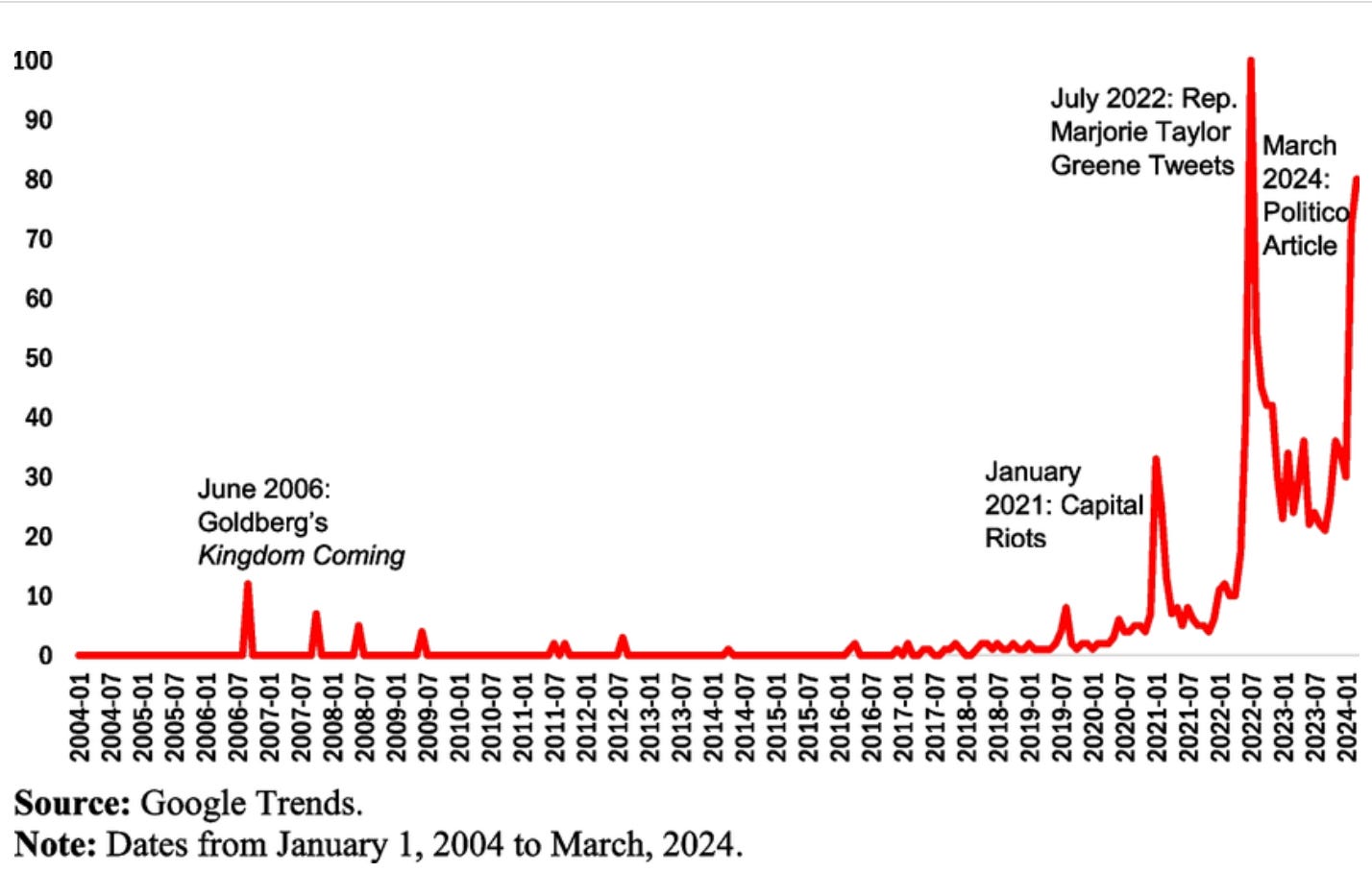Out of the fight.
What Christian Nationalism is really about...
I hate the topic of “Christian Nationalism.”
It is exhausting. I equate it to the term “Nazi” these days—so diluted, so overused, so weaponized that it basically means everything and nothing at the same time.
So, if that’s true… why write about it?
Because I believe there’s a reason it has been weaponized (and subsequently embraced by some). The fight isn’t really over the term “Christian Nationalism.”
The real war is being waged on the whole of Christendom to keep its followers out of the public square.
So I will not REALLY be writing about Christian Nationalism. Instead, I’ll try to answer the question: How do we, as Christians, engage with the world around us? What role does politics play in that engagement? What is the role of our faith and our values in the flourishing of a nation?
That’s the real game being played beneath all this cultural noise.
And it’s worth thinking through carefully.
**PS: I did a lot of reading to prepare for this topic—you can check out my book list if you’re interested in reading further down at the bottom of this article.
Let’s Be Clear About What’s Happening
If you’ve noticed the term “Christian nationalism” exploding after January 6, 2021, you’re not imagining things. There’s been a strategic effort to brand evangelical Christianity as somehow equivalent to white nationalism. The goal is simple: neutralize evangelical political engagement by making it toxic, sow division within the movement, and dismiss legitimate concerns about Christianity’s role in culture by tarring them with accusations of racism.
Let me be blunt: most people being labeled “Christian nationalists” are simply orthodox Christians who believe biblical values benefit society. They’re not white supremacists. They don’t believe America belongs to one ethnicity. They’re just Christians who refuse to pretend their faith is irrelevant to public life.
This is a dismissal tactic, and we shouldn’t fall for it.
That said, there is a real tension many are living in, between culture, immigration, and nostalgia. Some Christians look at Europe, where mass immigration of people with no interest in assimilation has either aggressively secularized nations or imported incompatible values, and they fear America following down that same path. This creates a defensive nostalgia—a longing for a time when culture was less hostile to Christianity.
The impulse is understandable. The error is associating that culture with demographic homogeneity. What we really want isn’t ethnic uniformity—it’s a culture where biblical values are confidently advocated as true and best for society. That can be achieved with a diverse coalition of people, nationalities, and backgrounds. But it requires intentionality. It requires Christians to be unequivocal that Kingdom values aren’t just true for us—they’re good for everyone. We must welcome anyone willing to submit to that truth, regardless of their background.
You Don’t Get to Opt Out
For those of you who are completely turned off by the political nature of this debate, thinking “I don’t want my faith to mix with politics,” let me just tell you something up front: Theology didn’t get political. Politics got theological. (Thanks, Josh Howerton, for this language)
Politics invaded theology. They came into our lane. They began to talk about when life begins, what makes a mother and father, what defines a man and a woman, what marriage is. These aren’t peripheral political issues that Christians are weirdly obsessed with. These are fundamental questions about reality, creation, and human flourishing that politics has decided is under their authority to adjudicate.
This is the front line today. Everyone has to participate. The culture war—the public struggle over what is true, what is good, and what is normal, and which institutions will teach, protect, and enforce those answers—is unavoidable. You’re already living with the consequences. The only question is whether you’ll engage faithfully.
You don’t get to dismiss politics as some form of nasty, beneath-you arena because your hope is in your winsome example of spiritual formation and gospel witness. We have a duty—at times—to take immediate action that will save lives or reorient our values in ways that help everyone flourish.
But you also don’t get to opt out of the long game. We cannot put our hope in the political sphere alone. Political winning will not, by itself, make our communities, nations, and families all that God intends them to be. That will not happen through politics alone.
Culture’s Playbook: Displacement and Distortion
Here’s what we’re up against. Culture has a two-pronged attack on faithful Christian engagement:
Tactic 1: Displacement (Disordering Your Identities)
They try to displace your Christian identity. They use social pressure—threat of cancellation, job loss, being labeled a bigot or a traitor—to get you to prioritize something else: your political tribe, your social class, your racial identity, your gender, your sexuality, your national loyalty. They reward conformity and punish independence. The goal is to get you to choose tribe over truth.
When conservatives do this, it might look like: “Defend that person and you’re soft on crime or soft on the border”, or “Support this leader, this intervention, this aid, or you’re betraying your country.”
When progressives do this, it looks like: “If you don’t affirm this ideology, you’re a bigot” or “You aren’t truly (insert identity statement), unless you support this political position.”





